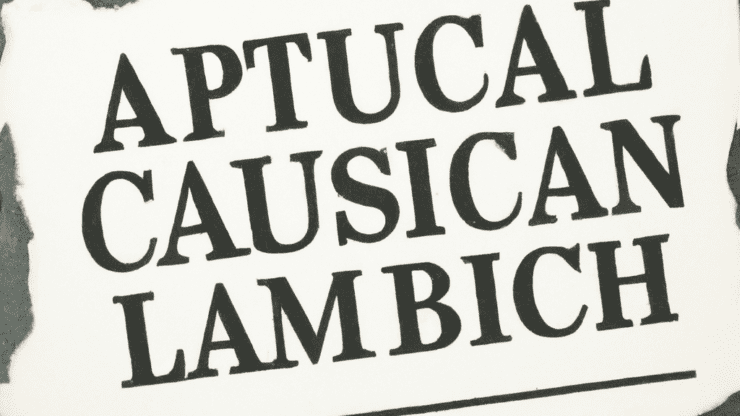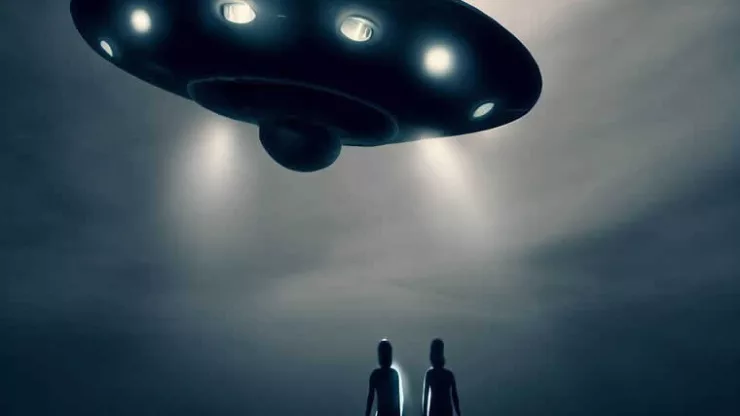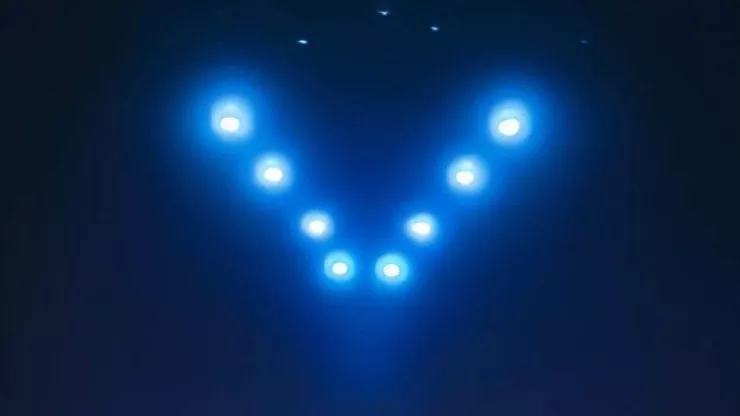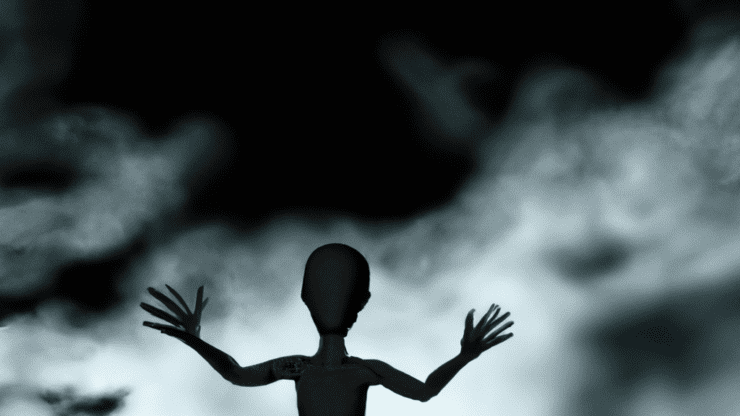In recent decades, the topic of extraterrestrial life and their possible interactions with humans has captivated the attention of many.
One of the most controversial and intriguing phenomena within this field is the alleged abduction of humans by aliens.
While some dismiss these claims as mere fantasies or hoaxes, others believe in the veracity of such accounts.
This article will explore the history of alien abductions, the psychology behind abduction experiences, compelling testimonies from alleged survivors, and debunked claims.
Additionally, we will examine scientific research on abduction claims and the importance of critical thinking when evaluating them.
Jump to Section
The History of Alien Abductions
Accounts of alien abduction have been reported for centuries, but it wasn’t until the 20th century that they gained significant attention.
In the 1960s and 1970s, a surge of interest in UFOs and extraterrestrial life led to a rise in abduction claims.
The Betty and Barney Hill Abduction
Perhaps one of the most famous alien abduction cases is that of Betty and Barney Hill. In 1961, the Hills claimed to have been taken aboard a spacecraft and subjected to medical examinations.
The case gained national attention, and it was one of the first incidents to receive widespread media coverage.
The Travis Walton Abduction
Another notable incident occurred in 1975 when Travis Walton claimed to have been abducted while on a logging job in Arizona.
Walton’s story gained notoriety when it was adapted into a Hollywood movie.
The Allagash Waterway Abductions
In 1976, four men canoeing in Maine claimed to have been abducted by aliens. The men reported being subjected to medical examinations while aboard a spacecraft.
The incident received little media attention at the time but continues to be discussed in UFO circles.
The Psychology of Abduction Experiences
Abduction claims have been linked to various psychological phenomena, including sleep paralysis, false memories, and suggestibility.
Sleep Paralysis and Hypnagogic Hallucinations
Sleep paralysis occurs when a person wakes up but is temporarily unable to move. During this state, some individuals experience hypnagogic hallucinations, which are vivid and often terrifying sensory experiences.
These experiences can be mistaken for alien abductions, and some researchers suggest that sleep paralysis may be a contributing factor in many abduction claims.
False Memories and Suggestibility
False memories can be created when an individual is exposed to suggestive information. In the case of abduction claims, hypnosis is often used to recover memories.
However, some researchers argue that hypnosis may actually create false memories rather than recover them.
The Role of Pop Culture and Media
The media often portrays extraterrestrial life and aliens in a sensationalized and exaggerated manner. This portrayal can influence individuals to interpret their experiences as alien abductions rather than considering more plausible explanations.
Compelling Alien Abduction Testimonies
Despite the psychological explanations for many abduction claims, some stories remain compelling and difficult to dismiss.
The Ariel School Encounter
In 1994, 62 schoolchildren in Zimbabwe claimed to have seen a spacecraft and communicated with its occupants.
The incident, known as the Ariel School Encounter, remains a topic of interest among UFO researchers and enthusiasts.
| Detail | Description |
|---|---|
| Location | Ariel School, Zimbabwe |
| Date | September 16, 1994 |
| Witnesses | 62 schoolchildren and several adults |
| Description | Children reported seeing a spacecraft land on school grounds and communicating with its occupants |
| Investigation | Researchers interviewed witnesses and found no evidence of fraud or deception |
The Kelly-Hopkinsville Encounter
In 1955, two families in rural Kentucky claimed to have been besieged by extraterrestrial beings. The encounter, known as the Kelly-Hopkinsville Incident, has been featured in books, movies, and TV shows.
- The beings were described as small, grey, and with large heads and eyes.
- The witnesses reported that the beings seemed impervious to gunfire.
- The incident was investigated by both civilian and military authorities, and no evidence of fraud or deception was found.
The Pascagoula Abduction
In 1973, two men in Mississippi claimed to have been abducted by aliens while fishing. The Pascagoula Abduction is one of the most well-documented alien abduction cases.
- The men reported being taken aboard a spacecraft and subjected to medical examinations.
- Polygraph tests were administered, and both men were found to be telling the truth.
- The incident was investigated by various authorities, including the U.S. Navy.
Debunked Abduction Claims
While some abduction claims are difficult to dismiss, others have been thoroughly debunked.
The Gulf Breeze UFO Sightings
In the late 1980s and early 1990s, numerous reports of UFO sightings were made in Gulf Breeze, Florida. However, investigations revealed that many of the sightings were likely hoaxes perpetrated by local residents.
The Roswell Incident
One of the most famous UFO incidents occurred in Roswell, New Mexico, in 1947.
The U.S. military initially reported that they had recovered a crashed weather balloon, but conspiracy theories have persisted that the wreckage was actually that of a spacecraft and its occupants.
The Phoenix Lights
In 1997, numerous witnesses in Arizona reported seeing a large, V-shaped object in the sky. The object was later identified as flares dropped by military aircraft, but some still consider the incident evidence of extraterrestrial life.
Scientific Research on Abductions
While scientific research on alien abductions is limited, some studies have been carried out to investigate the phenomenon.
The Role of Hypnosis in Recovering Abduction Memories
Hypnosis has been used to help individuals recall details of their alleged abduction experiences. Some studies suggest that hypnosis can improve memory recall, while others suggest that it can create false memories.
The Physical Evidence of Abductions
Some individuals who claim to have been abducted report physical evidence, such as scars or implants. However, these claims have not been substantiated by scientific investigation.
Critical Thinking and Skepticism in Evaluating Abduction Claims
In evaluating abduction claims, it’s essential to approach them with critical thinking and skepticism.
While some cases may be more compelling than others, it’s essential to consider all possible explanations before drawing conclusions.
The Importance of Skepticism
Skepticism is necessary when evaluating any extraordinary claim, including abduction claims. While it’s important to keep an open mind, it’s also essential to question the evidence presented and consider alternative explanations.
Evaluating the Evidence
When evaluating abduction claims, it’s crucial to consider all evidence presented critically. This includes any physical evidence, witness testimony, and scientific research.
FAQ
What is the most famous alien abduction case?
One of the most famous alien abduction cases is that of Betty and Barney Hill, who claimed to have been taken aboard a spacecraft and subjected to medical examinations in 1961.
Can sleep paralysis result in mistaken alien abduction claims?
Yes, sleep paralysis can result in individuals mistaking their experiences for alien abductions. During sleep paralysis, individuals may experience hypnagogic hallucinations, which can be vivid and often terrifying.
What is the role of hypnosis in recovering abduction memories?
Hypnosis has been used to help individuals recall details of their alleged abduction experiences. However, some studies suggest that hypnosis can create false memories rather than recover them.
How can critical thinking and skepticism be applied to evaluating abduction claims?
When evaluating abduction claims, it’s essential to consider all possible explanations and approach the evidence presented with critical thinking and skepticism. This includes evaluating witness testimony, physical evidence, and scientific research.
Greetings fellow space travelers, I am Draco Blaze, creator of Alienated Media who is passionate about exploring the unknown and writing about my experiences with extraterrestrial life.
My focus is on alien encounters and creating thought-provoking sci-fi short stories that transport readers to new worlds and realities.
Feel free to contact me at [email protected].





